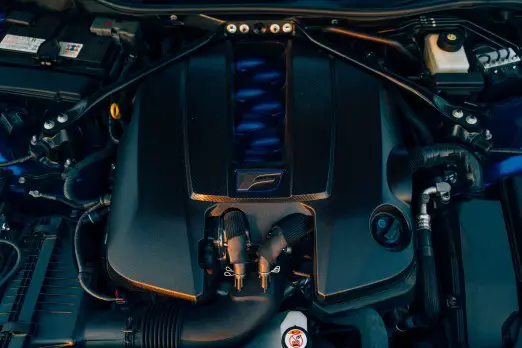Within the complex world of diesel engines, the Cummins 6-7 is a formidable force, well-known for both its dependability and robust performance. An essential component of this mechanical wonder is oil. This page explores the several roles that oil plays in the 6-7 Cummins engine, including its kinds, functions, and crucial role in maintaining the durability and performance of this powerful technical marvel. Come along for a tour through the complex lubrication system and learn why using the proper oil is essential for the 6-7 Cummins engine to operate at its best.
Importance of oil in engine performance:
The role of oil becomes crucial in the complex ballet of mechanical accuracy that is the 6-7 Cummins engine, as it is the key to both maximum performance and longevity. Oil serves as more than just lubricant; it creates a wall of defense that lessens the damaging effects of friction and wear on essential engine parts. This lubricating ability is essential for maintaining the longevity of the engine by guaranteeing the seamless operation of the camshafts, bearings, and pistons. In addition, oil plays the part of a watchful heat conductor, gliding through the engine’s complex passageways to remove extra heat and avert the threat of overheating and damage. Beyond these functions, oil takes on the duty of a steward of cleanliness, removing and collecting impurities that may otherwise cause internal chaos. The 6-7 Cummins engine depends a great deal on the diverse properties of the oil, a silent but essential collaborator in the symphony of combustion and energy production.

Engine Lubrication System:
The 6-7 Cummins engine lubrication system is a complex network built to guarantee longevity and peak performance. Essential elements and roles consist of:
- Oil Pump:
- The pump, which circulates oil throughout the engine, ensures that all important parts receive a steady supply.
- Oil Filter:
- eliminates impurities from the oil to stop debris from getting to engine components and causing harm.
- Oil Pan:
- serves as an oil reservoir, guaranteeing a continuous supply to the pump and preserving lubrication.
- Channels and Passages:
- A complex system of passageways and tubes provides targeted lubrication by directing oil to certain locations, such as camshafts, pistons, and bearings.
- Pressure Regulation:
- Under different engine circumstances, the system keeps the oil pressure at the ideal level to provide efficient lubrication.
Oil Types and Specifications:
Selecting the appropriate oil for the Cummins 6-7 engine is essential for achieving maximum efficiency and durability. Think about the following crucial factors when it comes to oil kinds and specifications:
- Viscosity:
- The viscosity of the oil that the engine needs varies depending on temperature and operating circumstances. It is important to choose an oil whose viscosity corresponds with the specifications provided by the manufacturer.
- API Classification:
- Oils are categorized by the American Petroleum Institute (API) according to their performance. Seek lubricants that either match or surpass the designated API grade for the Cummins 6-7 engine.
- OEM (Original Equipment Manufacturer) Recommendations:
- Regarding certain kinds and types of oil, see the manufacturer’s instructions. The engine’s design and performance requirements are considered in OEM recommendations.
- Synthetic vs. Conventional:
- In harsh environments, synthetic oils perform better and give superior protection. However, when deciding between synthetic and traditional oils, following the manufacturer’s recommendations is essential.
- Additive Packages:
- Consider oils with the right additive packages for oxidation resistance, detergency, and anti-wear qualities. These additives support both engine protection and the general functionality of the oil.
Cooling and Cleaning Functions:
Oil serves more than just lubrication in the 6-7 Cummins; it also performs essential cooling and cleaning tasks.
- Cooling:
- Heat produced during engine operation is absorbed and dispersed by oil, keeping parts from overheating. Preventing overheating-related problems and preserving ideal operating conditions depend on this cooling action.
- Contaminant Removal:
- Oil functions as a cleaning agent, removing impurities including dirt, metal fragments, and combustion byproducts. These contaminants are caught by the oil filter, which stops them from going through the engine and wearing down or damaging important parts.
- Heat Transfer:
- Oil transfers heat away from important engine components while also absorbing it. To keep engine components operating within their ideal temperature range, this aids in maintaining a balanced temperature throughout the engine.

Engine Protection:
The 6-7 Cummins engine is fiercely protected by oil, which offers vital defense in many ways.
- Wear Prevention:
- On moving parts, oil creates a protective layer that lowers friction and stops wear. This prevents early degradation of important parts such as camshafts, bearings, and pistons.
- Corrosion Resistance:
- The chemicals in the oil function as a barrier to prevent corrosion, protecting metal surfaces from oxidation and moisture. To keep engine components intact, this corrosion resistance is essential.
- Seal Conditioning:
- Oil contributes to the preservation and lubrication of gaskets and seals. This guarantees good sealing, stopping oil leaks, and preserving the interior environment of the engine.
- Contaminant Control:
- Oil reduces the possibility that abrasive particles may harm engine components by capturing and removing impurities. This preventative measure adds to the improvement of the engine’s durability and dependability.
- Temperature Regulation:
- By preventing overheating, the oil’s efficient heat dissipation shields components from thermal stress and damage. Maintaining engine performance at its best requires careful control of the temperature.
Oil Change Intervals:
The following variables must be considered when calculating the best oil change intervals for the Cummins 6-7 engine:
- Manufacturer Recommendations:
- Follow the manufacturer’s recommendations for how often to replace your oil. For advice on the engine model and operating circumstances, see the owner’s handbook.
- Usage Conditions:
- Adapt the intervals between oil changes to the vehicle’s use. Regular driving circumstances may not necessitate regular oil changes as heavy-duty or towing applications.
- Oil Type:
- When it comes to service intervals, synthetic oils frequently outlast conventional lubricants. Keep in mind the kind of oil being used and adhere to the product’s instructions.
- Monitoring Systems:
- Oil life monitoring systems are installed in several contemporary cars. These systems evaluate driving circumstances and offer alerts or suggestions for oil changes. Keep an eye out for these signs.
- Regular Inspections:
- Regular examination of the oil’s color and consistency can provide information about its state. Regardless of mileage, dark or grainy oil may signal that a change is necessary.
- Environmental Factors:
- Both hot and cold extremes can affect how well oil performs. To retain the best possible engine protection under difficult conditions, it can be required to replace the oil more often.
Common Issues and Troubleshooting:
The oil system may be the source of frequent problems with the Cummins 6-7 engine. The following possible issues and solutions are listed:
Oil Leaks:
- Issue: leaks near gaskets or seals.
- Troubleshooting: Inspect for visible leaks, address any damaged seals, and tighten connections. Regularly check for oil puddles under the vehicle.

Low Oil Pressure:
- Issue: inadequate pressure in the oil.
- Troubleshooting: Verify the quality and quantity of the oil. Examine the oil filter, pressure release valve, and oil pump. Take care of any problems or obstructions.
Oil Contamination:
- Issue: pollutants in the oil are present.
- Troubleshooting: Replace the filter and oil as soon as possible. Examine and resolve the pollution causes, such as a PCV (Positive Crankcase Ventilation) valve that is not working properly or excessive engine wear.
Excessive Oil Consumption:
- Issue: Unusually high oil consumption.
- Troubleshooting: Examine the valve seals, piston rings, and exterior leaks. Achieve optimal PCV system performance. Analyze the type and grade of oil being utilized.
Oil Sludging:
- Issue: sludge formation from motor oil.
- Troubleshooting: Use premium oil and follow the suggested intervals for oil changes. To avoid sludge accumulation, make sure the engine often reaches working temperature.
Knocking or Tapping Sounds:
- Issue: strange sounds coming from the engine.
- Troubleshooting: Investigate where the noise is coming from because it can be a sign of low oil levels, improper oil circulation, or problems with parts like lifters or bearings.
Maintenance Tips:
Several important maintenance guidelines are necessary to keep your 6-7 Cummins engine operating at peak efficiency:
- Follow Manufacturer Guidelines:
- Follow the owner’s manual’s suggested maintenance program, which includes regular checks, filter replacements, and oil changes.
- Choose the Right Oil:
- Utilize the viscosity and kind of oil that the manufacturer specifies. When choosing oil, consider variables like weather, road conditions, and towing requirements.
- Regular Oil Changes:
- To guarantee clean and efficient lubrication, change the oil and oil filter at the prescribed intervals. Frequent maintenance prolongs engine life by preventing the accumulation of pollutants.
- Monitor Oil Levels:
- Use the dipstick to periodically check the oil levels. To guarantee correct lubrication and avoid future engine damage, keep the oil at the required level.
- Inspect for Leaks:
- Check for oil leaks around gaskets, connectors, and seals regularly. Resolve any leaks as soon as possible to avoid oil loss and engine damage.
- Cooling System Maintenance:
- Make sure the air conditioning system runs well. To avoid overheating problems, check the coolant levels, hoses, and radiator regularly.
- Air Filter Replacement:
- By the manufacturer’s guidelines, change the air filter. Engine efficiency and ideal combustion are enhanced by a clean air filter.
- Fuel System Maintenance:
- Use premium gasoline and additives to maintain the cleanliness of the fuel system. To avoid problems linked to gasoline, regularly check, and replace fuel filters.
- Drive Responsibly:
- Avoids excessive idling and drives smoothly. Excessive driving practices may be a factor in the wear and tear on engine parts.
- Professional Inspections:
- Arrange for regular checkups by a licensed mechanic. Expert evaluations can spot any faults early on, avert serious complications, and guarantee peak engine performance.
Frequently asked questions:
Which oil is suggested by Cummins 6.7?
For the 6.7-liter engine, Cummins advises using engine oils that are authorized by Cummins CES and satisfy the API CK-4 or FA-4 requirements.
Does a 6.7 Cummins engine run on 15W40?
Indeed, 15W-40 engine oil is normally suitable for the 6.7 Cummins engine.
What type of oil is suitable for a B6 7?
For Cummins B6.7 engines, 15W-40 diesel engine oil that complies with API CK-4 or FA-4 requirements is appropriate.
How much oil (liters) does a 6.7 Cummins require?
A 6.7 Cummins engine can hold 12 to 14 liters of oil on average.
Conclusion:
To sum up, the 6-7 Cummins engine depends on a well-managed connection with oil to provide powerful performance and long-lasting dependability. Oil is used for much more than just lubrication; it also cools, cleans, and shields important engine parts. Choosing the proper oil, following suggested change intervals, and taking quick action on problems are crucial procedures for keeping your vehicle operating at its best. Owners can guarantee that their 6-7 Cummins engines not only meet but beyond expectations by adhering to these guidelines and performing attentive maintenance, which is a monument to the harmonic partnership between engineering perfection and meticulous care.

